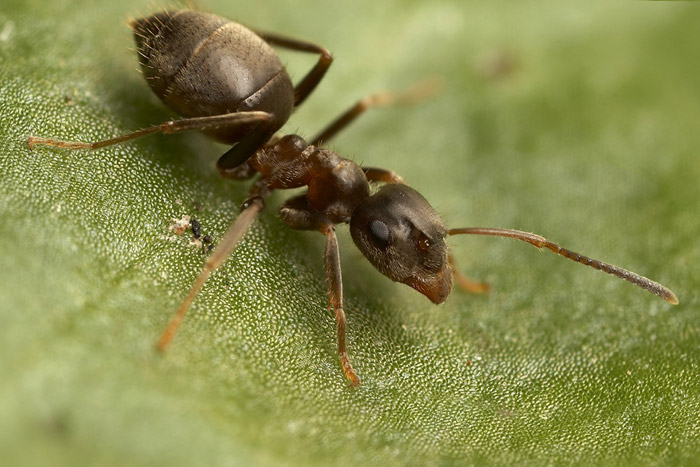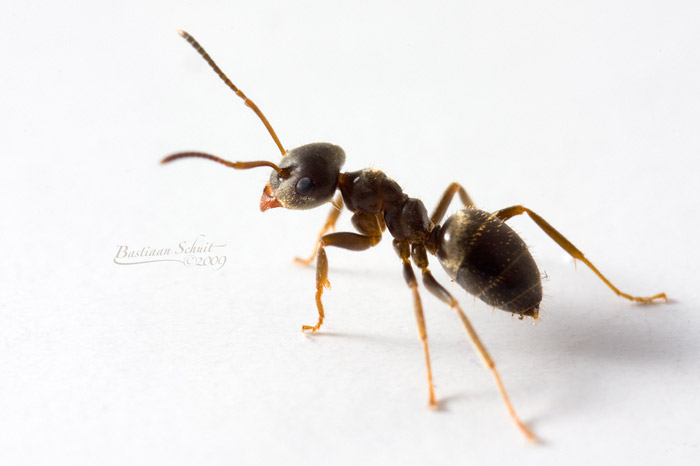
©Brian Valentine
An Introduction to black garden ants
The black garden ant, otherwise known just ‘black ant’ is one of the most common ant species found in Europe.
It is a very active, fast moving ant. They will typically run away from human confrontation.
They are well known for the once a year nuptial flight, when flying princesses and drones can be found almost everywhere.
They are a very strong ant species and can thrive in wide range of areas.
Scientific names
Lasius niger (featured), Lasius (Niger group) i.e. Lasius neoniger.
Distribution
Black garden ants are wide spread across Europe, some parts of N. America and Asia.
Habitat
Black garden ants are typically found in gardens under bricks and flower pots. The most common place to find them in urban areas is between pavements and curbs. They will often enter our homes foraging for food.
Diet
Black garden ants eat anything from leftovers, soft fruits, seeds, to other small insects. They can also frequently be seen farming honeydew farmed from aphids around gardens and vegetation.
Colony size
Black garden ants colonies can have up to 10,000 workers.
Queen
The black garden ant queen is around 9mm, with dark brown/black reddish legs and antenna. She has been known to live for up to 29 years (see ant fact 4). Black garden ants are monogyn (one queen per colony).
Workers
3-5mm, black with reddish legs and antenna.
Pest info
Black garden ants are particularly fond of ripe soft fruits like strawberries, annoying for farmers and allotment owners. see vegetation.
They also often enter homes in search of food, sometimes larger nests can weaken building foundations.
Pet info
Black garden ants are perfect species for first time ant owners.
They are very low maintenance, easy to find, tough, active, long lasting, clean and unable to bite or sting humans.
















